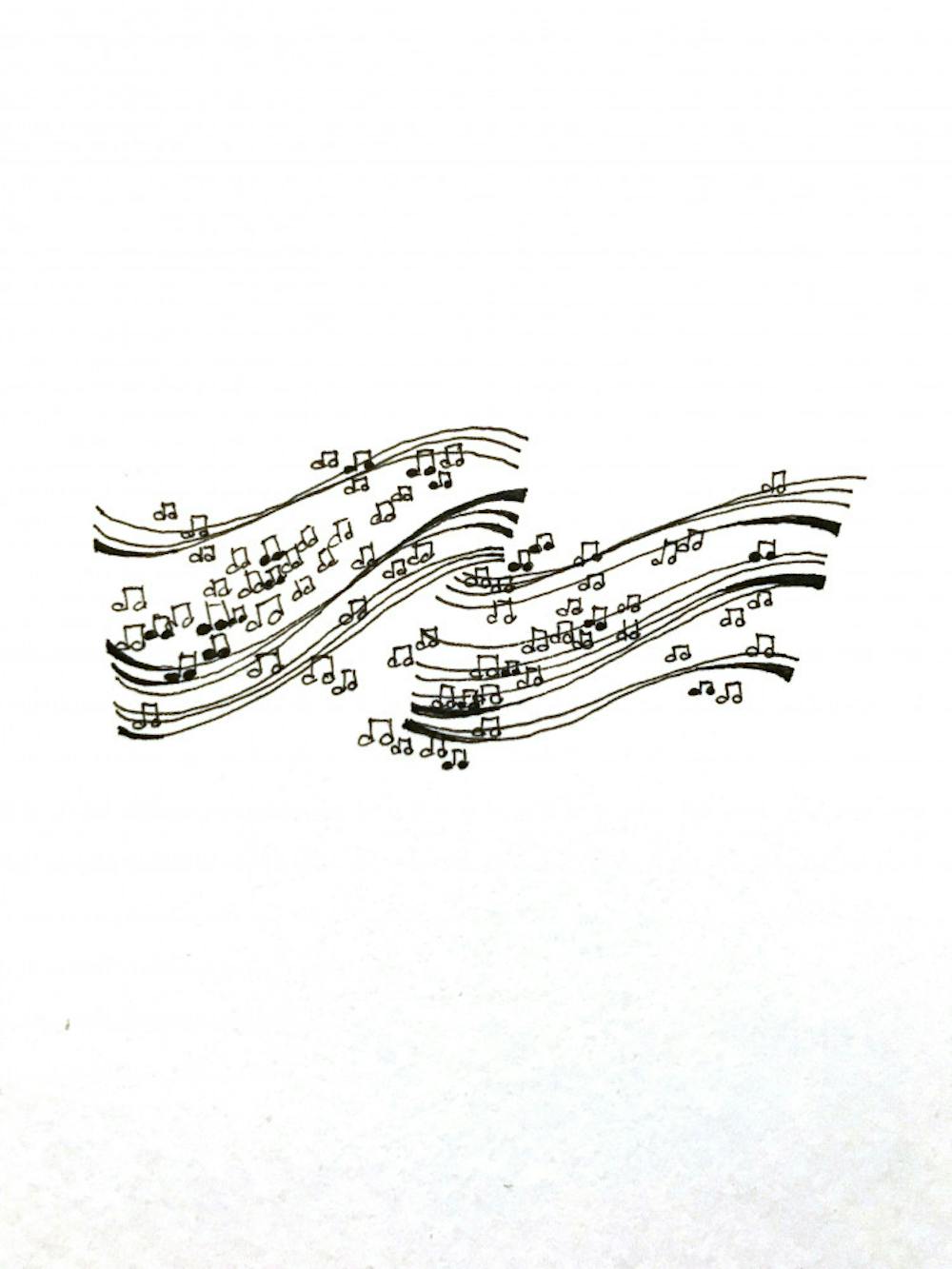You remove your headphones as you walk through the classroom door — the beat of the song you were just listening to still playing in your head — only to realize that this same song is being played aloud in your English class.
“Rhymes with Reason,” an educational platform founded and created by Austin Martin ’17, provides exactly this experience for students. The web-based learning tool teaches students vocabulary and academic concepts through popular hip-hop music.
The idea for this unique approach to learning came to Martin through his “whole life experience as a student,” he said. At first, Martin did not find himself interested in the traditional academic environment at school, instead spending time immersed in hip-hop music. But as he became a “more mature listener” of hip-hop, he began to take notice of the academic concepts contained in these songs. It was at this point that school “clicked,” and he began to see references to historical people in music and improvements in his communication, writing and vocabulary.
“I wanted to combine my love for hip-hop and this idea … about the academic viability of hip-hop,” Martin said. “I wanted to bring that spark to kids across the country with ‘Rhymes with Reason.’”
The Brown community helped solidify Martin’s motivation to “give back to (his) community,” he said, describing Brown as the “incubator” for “Rhymes with Reason.”
After earning a Social Innovation Fellowship through the Swearer Center, Martin benefited from a supportive advising network, leadership and alumni workshops and financial capital.
Among Martin’s mentors were Director of the Center for the Study of Race and Ethnicity in America Tricia Rose MA’87 PhD’93, Center Manager for CSREA Christina Downs, Assistant Professor of History and Religion Andre Willis and Associate Dean of the College Margaret Chang ’93 MA’13, Martin wrote in a follow-up email to The Herald.
Alan Harlam, adjunct lecturer in international and public affairs, mentored Martin through the fellowship. When Martin first walked into his office, “the idea just made a lot of sense to me,” Harlam said. In the initial stages, he guided Martin in developing an experiment to prove his hypothesis that if students learned vocabulary through hip-hop songs they already knew, they would be more interested in learning the vocabulary.
Martin showed that low-performing students were more likely to choose the hip-hop learning method over traditional flashcards, and they eventually surpassed the higher-performing students who studied with traditional flashcards, Harlam said.
“It was a really powerful, very small experiment, but (it) gave us a lot of confidence that (‘Rhymes with Reason’) was worth building,” Harlam said.
Starting off as Quizlet flashcards with an audio component, “Rhymes with Reason” eventually expanded to become a makeshift prototype tested in Hope High School in Providence. Now, the product has expanded to a “full-scale program,” Martin said. The program encompasses Common Core vocabulary, SAT vocabulary and history terms. Currently, Martin is working to implement it on a larger scale for the next school year.
Around 35 schools and after-school programs nationwide have adopted the product targeted at teenagers.
Phil Brophy, a New Jersey English teacher, is trying to build connections in his own classroom between “music and lyrics and vocabulary and slang.” When he heard about “Rhymes with Reason” on the radio, he was immediately “intrigued” and found it to be a “natural connection” to his teaching style, Brophy said. “Rhymes with Reason” has been the most effective of the many vocabulary initiatives he has attempted, he added.
Brophy recently created a midterm using words from the “Rhymes with Reason” unit. “I’ve never gotten a class that has gotten better scores than this year, in terms of them retaining the meanings of the words and being able to recall them three or four months later,” he said. “None of my students failed the vocabulary section.”
It is “important for teachers to recognize that the students come from their own place and perspective on things,” Brophy said, “and it’s a lot easier to get them to learn if you meet them there.”
Martin believes that the program has the greatest potential in urban education settings, where hip-hop culture also has its roots. Hip-hop culture is intertwined with youth culture, making it easier for “Rhymes with Reason” to build “authentic connections” with students, Martin said.
“There is a lot of power in tapping into the artists … and the songs that (the kids) listen to already and bringing those into an educational space,” Martin says. “We’re taking the hip-hop they already like, and saying, ‘That’s valid, that has value.’”





